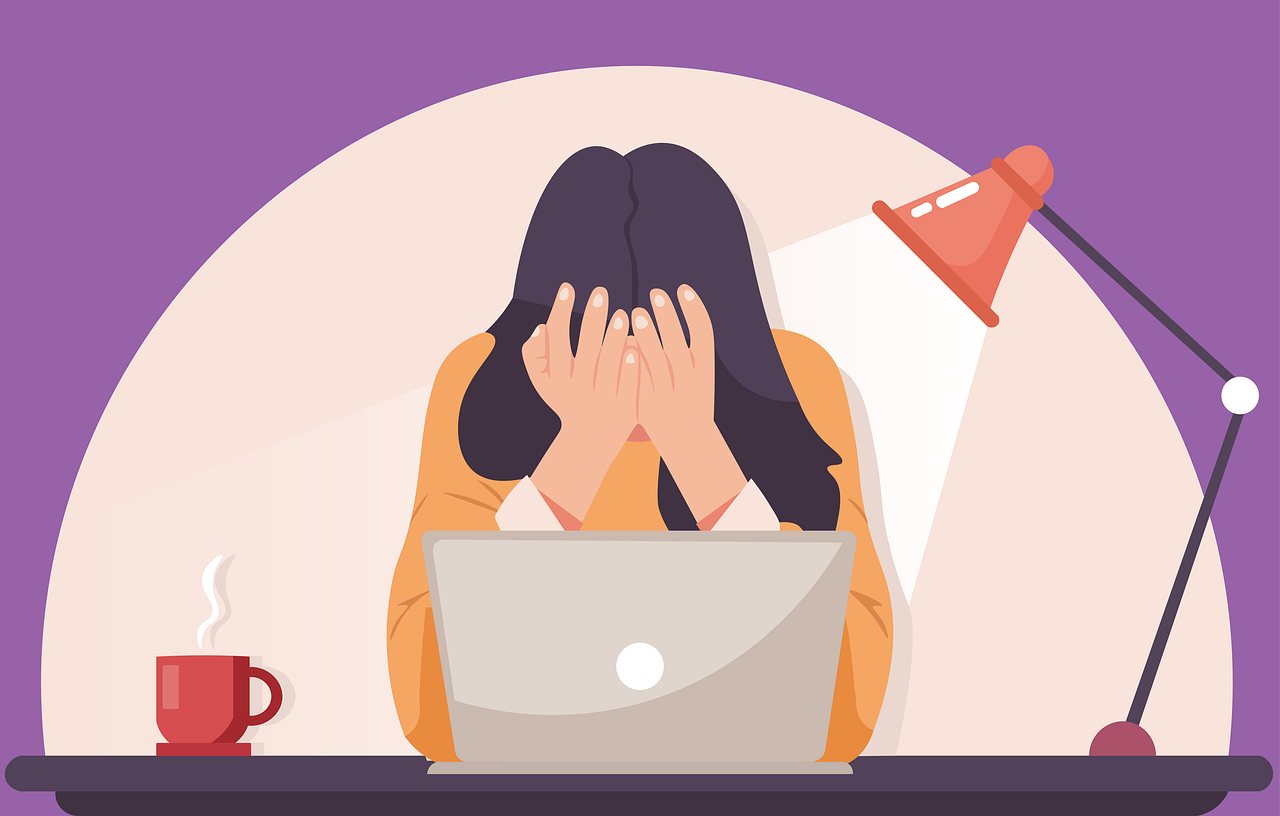Are you constantly feeling exhausted and drained? You’re not alone. In today’s fast-paced world, many of us struggle with fatigue and feeling run down, which can greatly impact our daily lives. In this article, we will explore the causes of fatigue and provide tips for regaining energy and improving overall well-being.
Why Are You Always Tired?
Do you often find yourself feeling exhausted and drained, despite getting enough sleep? There could be a number of underlying reasons for your constant fatigue. In this section, we will explore the various factors that may contribute to your perpetual tiredness. From lack of sleep to medical conditions, we will examine the potential causes and how they may be impacting your energy levels. So, let’s dive into the question: why are you always tired?
1. Lack Of Sleep
Lack of sleep can have a significant impact on energy levels and overall well-being. To address this issue, here are some steps you can take:
- Establish a consistent sleep schedule, aiming for 7-9 hours of sleep each night.
- Create a relaxing bedtime routine, such as reading or taking a warm bath.
- Avoid using electronic devices before bed, as the blue light can disrupt sleep.
- Create a comfortable sleep environment by keeping the room cool, dark, and quiet.
- Avoid consuming caffeine and large meals close to bedtime.
2. Poor Diet
Poor diet can contribute to chronic fatigue and low energy levels. To improve your diet and boost your energy, consider the following steps:
- Eat a variety of nutrient-dense foods, including fruits, vegetables, whole grains, lean proteins, and healthy fats.
- Avoid sugary snacks and processed foods, as they can lead to energy crashes and other negative effects on the body.
- Stay hydrated by drinking plenty of water throughout the day.
- Limit your intake of caffeine and alcohol, as these substances can disrupt sleep patterns and dehydrate the body.
- Plan and prepare meals ahead of time to ensure you have a variety of healthy options readily available.
By making these dietary changes, you can improve your energy levels and combat chronic fatigue caused by a poor diet.
3. Sedentary Lifestyle
A sedentary lifestyle can contribute to chronic fatigue and low energy levels. To combat this, make sure to incorporate physical activity into your daily routine with the following steps:
- Set aside dedicated time for exercise, aiming for at least 30 minutes of moderate-intensity activity most days of the week.
- Incorporate movement into your daily life, such as taking the stairs instead of the elevator or going for a walk during your lunch break.
- Find activities you enjoy, like dancing, cycling, or hiking, to make exercise more engaging and sustainable.
- Break up long periods of sitting by taking regular breaks to stretch or do mini workouts.
- Consider using a standing desk or an exercise ball as an alternative to sitting for extended periods of time.
By incorporating regular physical activity and reducing a sedentary lifestyle, you can boost your energy levels and improve overall well-being.
4. Stress And Anxiety
Stress and anxiety can greatly contribute to feelings of fatigue and tiredness. By managing and reducing stress levels, you can boost your energy and overall well-being.
- Identify stressors: Recognize the sources of stress and anxiety in your life, such as work, relationships, or financial concerns.
- Practice relaxation techniques: Incorporate activities like deep breathing exercises, meditation, or yoga into your daily routine.
- Engage in physical activity: Regular exercise helps reduce stress and releases endorphins that elevate mood and energy levels.
- Establish healthy boundaries: Learn to say no to excessive commitments and prioritize self-care.
- Seek support: Reach out to friends, family, or a mental health professional for guidance and support in managing stress and anxiety.
5. Medical Conditions
When it comes to understanding why you are always tired, it’s essential to consider the role that medical conditions may play. If you consistently feel fatigued despite getting enough sleep, eating well, and managing stress, it may be time to consult a healthcare professional. Here are some steps to take:
- Start by scheduling an appointment with your primary care physician.
- Be prepared to discuss your symptoms, medical history, and any medications you are taking.
- Undergo any necessary testing or screenings to rule out any underlying medical conditions.
- Follow your healthcare provider’s recommendations for treatment and management of any identified medical conditions.
- Stay proactive in managing your health, attending follow-up appointments, and addressing any concerns that arise.
How To Boost Your Energy Levels?
Are you constantly feeling exhausted and low on energy? In this section, we will discuss effective ways to boost your energy levels and combat fatigue. By implementing these strategies, you can improve your overall well-being and lead a more energized life. From getting enough sleep to managing stress and anxiety, we will cover various aspects that can help you increase your energy levels. So, let’s dive into the different ways to boost your energy and feel revitalized.
1. Get Enough Sleep
Getting enough sleep is crucial for maintaining energy levels throughout the day. Here are some steps to help you prioritize sleep:
- Establish a consistent sleep schedule by going to bed and waking up at the same time every day.
- Create a relaxing bedtime routine to signal to your body that it’s time to sleep.
- Create a sleep-friendly environment by keeping your bedroom dark, quiet, and at a comfortable temperature.
- Avoid stimulating activities or screens before bed as they can disrupt your sleep.
- Avoid caffeine and heavy meals close to bedtime, as they can interfere with falling asleep.
- Invest in a comfortable mattress and pillows that suit your sleep preferences.
- If you’re still struggling to get enough sleep, consider speaking with a healthcare professional to address any underlying sleep disorders or concerns.
2. Eat a Balanced Diet
Eating a balanced diet is crucial for maintaining optimal energy levels throughout the day. Here are some steps to help you achieve a balanced diet:
- Incorporate a variety of fruits and vegetables into your meals to ensure a good intake of vitamins and minerals.
- Include lean proteins such as chicken, fish, and tofu to provide essential amino acids for energy production.
- Choose whole grains like quinoa, brown rice, and whole wheat bread to provide a steady release of energy.
- Include healthy fats from sources like avocados, nuts, and olive oil, which can help sustain energy levels.
- Stay hydrated by drinking plenty of water throughout the day.
True story: Sarah, a busy working professional, struggled with constant fatigue until she made a conscious effort to eat a balanced diet. By incorporating more fruits, vegetables, and whole grains into her meals, she noticed a significant boost in her energy levels, enabling her to tackle her daily tasks with renewed vigor.
3. Exercise Regularly
Regular exercise is crucial for boosting energy levels and combating fatigue. Here are some steps to incorporate exercise into your routine:
- Choose activities you enjoy, such as walking, jogging, or dancing.
- Start with small, manageable goals and gradually increase intensity and duration.
- Exercise Regularly: Consistency is key, aim for at least 150 minutes of moderate-intensity aerobic exercise per week.
- Include strength training exercises to improve muscle strength and endurance.
- Stay hydrated and fuel your body with nutritious foods to support your workouts.
Remember, always consult with a healthcare professional before starting any new exercise program. Regular physical activity not only boosts energy levels but also has numerous long-term health benefits. So lace up your sneakers and get moving!
4. Manage Stress and Anxiety
Managing stress and anxiety is crucial for preventing constant fatigue. Here are some steps to effectively manage stress and anxiety:
- Identify triggers and stressors in your life.
- Practice relaxation techniques such as deep breathing, meditation, or yoga.
- Engage in regular physical activity to reduce stress levels.
- Ensure you have a healthy work-life balance and take breaks when needed.
- Seek support from friends, family, or a therapist to help manage stressors.
5. Address Medical Conditions
Addressing medical conditions is crucial in combating constant fatigue. Here’s a list of steps to take:
- Consult a healthcare professional to identify any underlying medical conditions contributing to fatigue.
- Follow the recommended treatment plan for any diagnosed conditions, such as thyroid disorders or anemia.
- Take prescribed medications consistently and as directed by your doctor.
- Adopt lifestyle changes, like incorporating regular exercise and eating a balanced diet, to support overall health and improve energy levels.
- Practice stress management techniques, such as mindfulness or therapy, to alleviate any psychological factors that may be contributing to fatigue.
When To Seek Medical Help?
Feeling tired from time to time is a normal part of life, but when does it become a cause for concern? In this section, we will discuss when it may be necessary to seek medical help for your fatigue. Whether it is a persistent feeling of tiredness, accompanying symptoms, or interference with daily life, recognizing when to seek medical attention can be crucial for addressing the root cause of your exhaustion. Let’s dive into the signs and circumstances that may warrant a visit to your healthcare provider.
1. If Tiredness Persists
If you are experiencing persistent tiredness, it may be a sign of an underlying issue that requires medical attention. Here are steps to take if tiredness continues:
- Consult a healthcare professional to determine the cause of your fatigue.
- Undergo necessary medical tests to rule out any underlying medical conditions.
- Follow the recommended treatment plan provided by your healthcare professional.
- Make lifestyle changes, such as improving your sleep hygiene, managing stress, and incorporating regular exercise.
- Ensure you are eating a balanced diet and staying properly hydrated.
2. If Accompanied By Other Symptoms
When feeling tired, it is important to pay attention if it is accompanied by other symptoms, as this may indicate an underlying medical condition. Here are steps to take if tiredness is accompanied by other symptoms:
- Consult a healthcare professional to discuss your symptoms and get a proper diagnosis.
- Follow any recommended treatments or medications prescribed by your healthcare provider.
- Make lifestyle changes, such as improving your sleep habits, adopting a healthier diet, and managing stress levels.
- Ensure you are properly hydrating and practicing good self-care.
- Monitor your symptoms and communicate any changes or concerns with your healthcare provider.
- Remember, everyone’s experience is unique, so it’s important to listen to your body and seek appropriate medical help when needed.
3. If Interfering With Daily Life
When exhaustion begins to disrupt your daily routine, it’s crucial to take action. Here are some steps to address the problem:
- Assess your daily routine and identify any potential triggers or habits that may be contributing to your fatigue.
- Create a consistent sleep schedule and prioritize getting quality sleep.
- Make time for physical activity and incorporate regular exercise into your daily routine.
- Implement stress management techniques, such as deep breathing exercises or mindfulness practices.
- If fatigue persists despite making lifestyle changes, it is important to consult a healthcare professional for further evaluation and guidance.
Sarah, a busy professional, realized that her constant fatigue was interfering with her work and relationships. She followed these steps and discovered that a combination of poor sleep habits, stress, and lack of exercise were the main causes. With the help of a sleep schedule, exercise routine, and stress management techniques, she regained her energy and improved her overall well-being.
How To Prevent Feeling Tired All The Time?
Feeling tired all the time can greatly impact our daily lives and productivity. In this section, we will discuss effective ways to prevent constant fatigue and improve our overall energy levels. By maintaining a healthy lifestyle, practicing good sleep hygiene, managing stress and anxiety, and listening to our bodies, we can combat the root causes of tiredness and feel more energized throughout the day. Let’s dive into these techniques and learn how to prevent feeling tired all the time.
1. Maintain a Healthy Lifestyle
In order to combat tiredness and boost energy levels, it is crucial to maintain a healthy lifestyle. Here are some steps to consider:
- Stay active: Engage in regular physical activity, such as walking, jogging, or yoga, to increase energy levels.
- Eat well: Consume a balanced diet rich in fruits, vegetables, whole grains, lean proteins, and healthy fats to provide the body with essential nutrients.
- Stay hydrated: Drink plenty of water throughout the day to prevent dehydration, which can lead to fatigue.
- Get enough sleep: Prioritize quality sleep by establishing a consistent sleep schedule and creating a relaxing bedtime routine.
- Manage stress: Practice stress-reducing techniques like meditation, deep breathing exercises, or engaging in hobbies to maintain mental and emotional well-being.
After struggling with constant fatigue, Sarah decided to make a change. She started incorporating regular exercise, eating a nutritious diet, and prioritizing sleep. Within weeks, Sarah noticed a significant improvement in her energy levels, allowing her to tackle her daily activities with vigor and enthusiasm.
2. Practice Good Sleep Hygiene
Practicing good sleep hygiene is essential for improving the quality of your sleep and overall energy levels. Here are some steps you can take to practice good sleep hygiene:
- Establish a regular sleep schedule by going to bed and waking up at the same time every day.
- Create a bedtime routine that helps you relax and signals to your body that it’s time to sleep.
- Create a sleep-friendly environment by keeping your bedroom cool, dark, and quiet.
- Avoid electronics, caffeine, and stimulating activities before bed.
- Ensure your mattress and pillows are comfortable and supportive.
3. Manage Stress and Anxiety
Managing stress and anxiety is crucial for preventing chronic fatigue. Here are some steps to help manage stress and anxiety:
- Practice relaxation techniques such as deep breathing, meditation, or yoga.
- Engage in regular physical exercise to release endorphins and reduce stress.
- Establish a healthy work-life balance and prioritize self-care.
- Seek support from friends, family, or a therapist to talk about your concerns.
- Implement stress management strategies like time management and setting realistic goals.
I struggled with chronic fatigue due to stress and anxiety. By practicing mindfulness and seeking therapy, I learned to manage my stress levels and prioritize self-care. Now, I have more energy and feel more balanced in my daily life.
4. Listen to Your Body
Listening to your body is crucial for understanding and addressing your fatigue. Here are some steps to take:
- Pay attention to your energy levels throughout the day.
- Recognize the signs of fatigue, such as difficulty concentrating or frequent yawning.
- Identify patterns or triggers that may be causing your exhaustion.
- Take breaks and rest when needed, allowing your body to recharge.
- Adjust your daily routine and prioritize activities that help you feel more energized.
By following these steps and listening to your body’s signals, you can gain a better understanding of the underlying causes of your tiredness and make necessary lifestyle changes.
Frequently Asked Questions
Why are you always tired?
There are many possible reasons for feeling constantly tired. It could be due to an underlying medical condition, lack of sleep, poor nutrition, or a sedentary lifestyle. It is important to consult a doctor to determine the root cause.
What are some common medical conditions that can cause constant fatigue?
Some medical conditions that can lead to persistent fatigue include anemia, thyroid disorders, depression, and chronic fatigue syndrome. It is important to consult a doctor for proper diagnosis and treatment.
How much sleep do I need to feel well-rested?
The amount of sleep needed varies from person to person, but on average, adults need 7-9 hours of sleep each night. Adequate sleep is crucial in maintaining good physical and mental health.
Can poor nutrition contribute to feeling constantly tired?
Yes, a diet lacking essential nutrients such as iron, B vitamins, and healthy fats can lead to fatigue. It is important to eat a balanced diet to ensure proper energy levels.
Is it possible to be too active and still feel tired?
Yes, overexertion and pushing oneself too hard physically can lead to fatigue. It is important to balance physical activity with rest and allow the body to recover.
What are some lifestyle changes that can help combat constant fatigue?
Some lifestyle changes that can help improve energy levels include getting regular exercise, eating a balanced and nutritious diet, managing stress, and maintaining a consistent sleep schedule. It is also important to consult a doctor for proper diagnosis and treatment if necessary.



